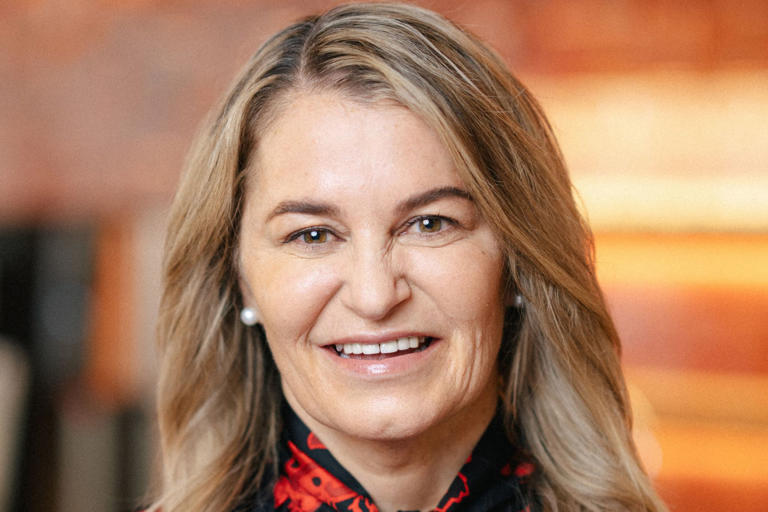Rachel Ruggeri has recently stepped into the role of interim CEO at Starbucks, a high-profile position that comes at a time of significant transition for the company. Her appointment comes in the wake of CEO Laxman Narasimhan’s abrupt departure from both his executive role and the board of directors, marking a major shift in leadership at the coffee giant.
Adding to the flurry of activity, Ruggeri executed a significant stock sale under a Rule 10b5-1 trading agreement. On the day her new role was announced, she sold 3,750 shares of Starbucks, totaling $341,850. This sale was part of a pre-arranged trading plan established in November of the previous year. Rule 10b5-1 agreements are designed to prevent accusations of insider trading by setting up a predetermined schedule for buying or selling shares, which is managed by an independent broker. This ensures that trades are carried out based on pre-set criteria rather than insider information or market conditions.
Despite the timing of her stock sale coinciding with her new appointment, the transaction was not a reaction to recent events but rather a result of a strategy established well in advance. The trading agreement allowed Ruggeri to sell her shares without the risk of insider trading violations, thereby maintaining transparency and integrity in the process.
The broader context of this leadership change includes the arrival of Brian Niccol, the former CEO of Chipotle, who will officially assume the role of Starbucks’ CEO on September 9. Niccol’s appointment comes at a crucial time for Starbucks, which has faced several operational and strategic challenges in recent years. Ruggeri, who was previously Starbucks’ Chief Financial Officer (CFO), will lead the company in the interim, bringing her extensive financial expertise to the forefront as the company navigates this transitional period.
The market has reacted positively to the leadership changes at Starbucks, with the company’s stock price seeing a significant boost. After the announcements, Starbucks’ shares climbed from $77 to $91, reflecting a nearly 30% increase in just a few days. This surge in stock value underscores investor confidence in the new leadership and the potential for a renewed strategic direction under Niccol’s future stewardship.
A Rule 10b5-1 trading agreement, which Ruggeri utilized for her stock sale, is a legal provision that allows corporate insiders to trade their company’s stock in a manner that avoids the appearance of insider trading. The agreement requires that the trades be executed according to a predetermined schedule or formula, which is managed by an independent party, such as Fidelity Brokerage in this instance. This setup eliminates personal discretion, ensuring that trades are made based on pre-set criteria rather than market fluctuations or confidential information.
Ruggeri’s recent stock sale involved restricted stock units that had vested as part of her compensation package over the past two years. Even after this sale, she retains a substantial interest in Starbucks, holding more than 1.13 million shares or equivalent units, as detailed in a recent SEC filing. This indicates her continued confidence in the company’s future performance and her commitment to its success.
Starbucks has experienced substantial growth since its inception in the 1970s, but the past few years have presented a series of challenges. The company has seen significant turnover in its executive ranks, with Howard Schultz returning multiple times to lead the company through various crises. Schultz’s leadership was crucial during the financial crisis of 2008 and the COVID-19 pandemic, periods during which he was called back to stabilize the business.
Narasimhan’s tenure, though brief at just 17 months, was marked by difficulties, including navigating a complex consumer environment, managing union negotiations, and addressing geopolitical tensions. Starbucks’ most recent earnings report highlighted a 3% decline in comparable global store sales and a 1% decrease in net revenues, which totaled $9.1 billion. These figures reflect the challenges the company has faced in maintaining its growth trajectory and profitability.
With Brian Niccol’s upcoming appointment, Starbucks is positioning itself to address these challenges with fresh leadership. Niccol is recognized for his success in retail management and his ability to deliver substantial shareholder value, qualities that are seen as vital for Starbucks as it seeks to reinvigorate its brand and operations. Howard Schultz has endorsed Niccol, emphasizing his retail excellence and his alignment with Starbucks’ culture and values.
As Starbucks transitions into this new phase, the effectiveness of its leadership changes and strategic decisions will be crucial in determining the company’s path forward. The market, investors, and industry analysts will be closely monitoring how these changes impact Starbucks’ performance and strategic direction in the coming months.
